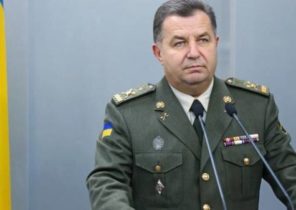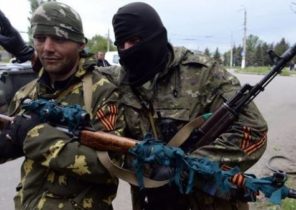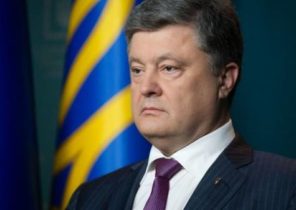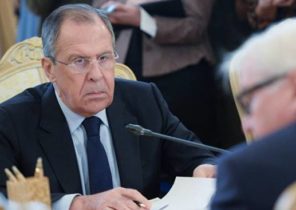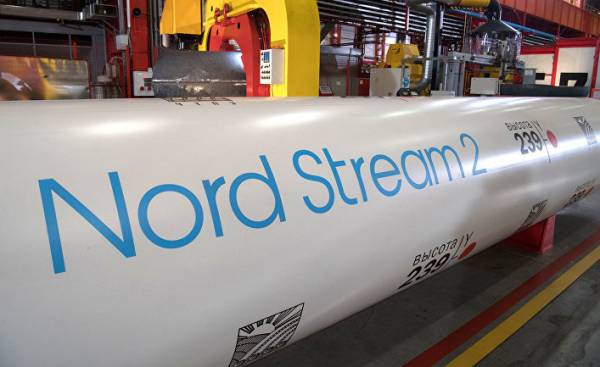
5 June is world environment day. The head of the energy program “Greenpeace Russia” Vladimir Chuprov the head of programme on protected areas “Greenpeace Russia” Mikhail Kreindlin answered a few questions RFI on the most pressing environmental topics.
RFI: Michael, the other day it became known that the gas pipeline “Nord stream-2” faced with the opposition of the farmers from the German island of rügen, through which must pass the ownership of the gas pipe. They are trying to persuade. What about the Kurgalsky reserve, his fate is already decided?
Mikhail Kreindlin: it was Originally planned that “Nord stream-2” will be held parallel to the “Nord stream-1”, with which nobody argued. But some time ago Gazprom and the operator of the company “Nord stream-2” said that as a result of their study to lay a pipeline parallel to the existing pipeline they have no opportunity, so they chose two other options, one of which actually passes through the Kurgalsky reserve. It is especially protected natural territory and subject to two international conventions — the Convention for the protection of the marine environment of the Baltic sea area and the Convention on wetlands of international importance mainly as habitats of waterfowl. This year, the company officially announced that virtually the only option is through the Kurgalsky reserve.
— What is the probability that the gas pipe will pass through its territory and what will happen to the nature?
Mikhail Kreindlin: I think that the probability is 50 percent. Now it depends, first, on the position of those countries through which the pipeline must pass. First and foremost, it is the Scandinavian countries and Germany. They must, in accordance with international law, to give permission for its construction, to Express their position. If they will require Russia to change the route in respect of passage through the Kurgalsky reserve, I think, Russia will have no chance but to change it. We have now created a petition that has already collected more than 25 thousand signatures. About what would represent this pipeline, if built. This refers to the terrestrial part of it. One of the most valuable parts of the territory of the reserve, which is home to a large number of rare plants and animals, it is supposed to cut down the forest strip 85 meters wide, to build inside of her is a road, put two pipes. In fact, get a strip with a length of about 4 kilometers. From the natural point of view it will lose all value, and cut off the entire southern part of the reserve. We believe that this is totally unacceptable. In addition, we must not forget also about the marine part, because coastal waters around the reserve and are valuable from the point of view of the habitat of a large number of waterfowl, there are also a key habitat of the Baltic ringed seal, it is also a rare seal of the Baltic, whose numbers are declining…
— Michael, if we are talking about water, I have to ask about Baikal. This spring, the New York Times wrote about the fact that a large flow of tourists, including foreign ones, has become a real environmental problem for the lake, is this true?
Mikhail Kreindlin: Indeed, the flow of tourists to lake Baikal in recent years. It is not only tourists from China, but Russian tourists, both European and from other countries. The current infrastructure on the lake, of course, does not correspond to the thread that is, so indeed, tourism is now having considerable impact on the ecosystem of lake Baikal, which, I remind you, is a world heritage site by UNESCO. Unfortunately, those Russian structures which are responsible for management of the Baikal natural territory, are unable to solve the problem, so a very large percentage of pollution in the area. Sometimes it is not only pollution, but also, for example, on Olkhon island, where a very large flow of tourists, in my opinion, to 100 thousand people a season, destruction of habitat, including rare plant and animal species.
— Most likely tourists — not only that today threatens Baikal, isn’t it?
Mikhail Kreindlin: This is really not the only threat that now exists for the ecosystem of lake Baikal. The most significant threat comes, ironically, from Mongolia. It plans the construction of cascade hydropower stations on the Selenge river and its tributaries, Egin-Gol and Orkhon. If regulated runoff of the Selenga, which is the main tributary of lake Baikal, this may affect the level of the lake and its hydrological regime. Besides that, there are absolutely already, unfortunately, the real threat is the overgrowing of the lake by the algae in the first place, Spirogyra, she is very actively growing, which leads to a decrease of oxygen in the water. Climate change, getting into the lake a large number of organics, including for tourists, located on the coast settlements, production facilities — apparently, it adds up, and it turns out such here situation. And while no definite decision what to do with all this.
— And what to do with forest fires, why is this such a large problem arises before the Russians every spring and summer?
Mikhail Kreindlin: the First peak of the fires happen in the spring, and is connected with the phenomenon of mass uncontrolled burning of grass. In the United States and Canada, too, the problem exists, and it is also very serious. But it is absolutely not typical for Europe, there is a grass do not burn, abolished this tradition. This year the situation is much better. This is due to the fact that in 2015 we finally achieved that was introduced at the Federal level a government ban on burning of agricultural land, and state authorities began the ban to pay attention and be prosecuted for these actions when I can. Although this is also still much work ahead. And, secondly, a powerful propaganda is in the media about the inadmissibility of these uncontrolled poker.
After all, what is the reason that the fires turn into a natural disaster every year?
Mikhail Kreindlin: the Irresponsibility of people, lack of government attention to these issues because there is a very strong under-funding of public services, which should deal with forest fires. And it involves this thing we call “the forest fire lie”: the regions and the Federal service many are afraid to show the real area of fires, it is clear that it is not for them will praise, deliberately underestimate square. And times lower than the square, this implies a lack of sufficient funding with the hope that the rains come, all will be solved by itself. But the rains are always, sometimes it leads to disastrous fires, when it declared a state of emergency, vbuhivayut huge billions of rubles, used aircraft, etc., but if the fires got out of control, they will do it.
***
RFI: How would you comment on the US withdrawal from the Paris climate agreement, and how will this affect Russia’s ratification of this document?
Vladimir Chuprov: trump’s Statement on the U.S. withdrawal from the Paris agreement — of course, bad news because it would slow down the transition of the world economy to green energy, it will significantly weaken the position of the business, which is engaged in the production of green energy in the United States, it will reduce aid to developing countries in the framework of the Paris agreement. Least developed countries now need help to adapt to climate change, and to Finance green energy. For Russia, the statement by trump is an argument in favor of the camp, which is represented by fossil energy, i.e. the energy, which depends on the raw model of the economy of our country is an oil and gas company, first and foremost. There is a risk that ratification of the Paris agreement could be delayed. The recent statements of the President of Russia at the economic forum and the Minister of natural resources and environment Donskoi before the Declaration of the trump, inspire confidence that ratification will occur in 2019-2020. We know that the Ministry decided to revive the program for energy efficiency. We have, according to various estimates, about every second ton of oil, coal or cubic meter of gas burned is wasted. Imagine what this huge amount of money, not to mention the damage to the climate!
— How can we explain that in the 21st century in the top ten most polluted cities in the world continue to appear two Russian cities — Norilsk and Dzerzhinsk. In this list, there is no settlement of the United States, Europe, Canada, Australia…
Vladimir Chuprov: Dzerzhinsk is a city where chemical weapons were manufactured in the Soviet Union, where accumulated much waste side of this production. In the middle of the city dump these lakes that the birds just can’t fly, because falling from the fumes. And all this in a residential area, that is, it is simply unacceptable. Norilsk is one of the pain and the trouble is not Russia but the whole of humanity. This is something that was created as part of the Gulag system under Stalin, it is something that is beyond the Arctic circle, in the tundra. And technologies that are used, of course, could never be applied in the West. Because it is toxic emissions that leave a mark in the radius of hundreds of kilometers. This toxic trail extends South from the plant, Krasnoyarsk Krai, destroying tens of thousands of hectares of forests and so on. The answer to why and who is to blame, too obvious. It stems from the fact that today the system of state environmental oversight and monitoring is built in such a way that the state is not interested in high technologies. Because any implementation of high environmental standards is the cost. The cost is the decline in net profit. Today the business is much easier due to environmental dumping to save and raise profitability than to enter a situation where everyone wins — the environment, the local population. This is now in the country! Environmental standards, which would also benefit the state and business, no. The state today in most of the questions turned away from the topic of environmental standards.
— I want to ask you about another rating. This time — about the top ten countries with the most developed alternative energy. It contains such different terms of climate and the economy of the state, as Norway, China, Nigeria. Why there is no Russia, what do you think?
Vladimir Chuprov: today there are a few basic reasons. The first is that in Russia traditionally low electricity tariffs. This is something that does not allow you to pay for new, renewable energy and implement energy efficient technologies because the payback period more than 20, 30, 40 years. If Muscovites pay 5 cents per kilowatt-hour, while wind energy is 6 rubles, but now early to speak about what it accustomed us. But here the question arises, why do we have low electricity tariffs? It’s very simple: because we have a powerful subsidies our gas, coal, oil and nuclear companies. The question arises: is the state ready to create equal conditions of subsidies for conventional and renewable energy? Russia, fortunately, is moving in this direction of alignment, but so far not so quick to say that tomorrow renewable energy will receive a powerful impetus. Because there are no groups lobbying, which could tomorrow, the energy Department, presidential administration, on whatever level, to stand up and say: guys, change the system. This does not happen for the reason that the whole establishment — energy, politically — confined to the existing economic model, which depends on oil rents. The third reason is technical. Today the country’s surplus capacity in the power sector. To develop new sources of energy, we need to develop old. Companies are not beneficial to close your old power, and the state is advantageous to maintain them. You have built coal or oil-fired station in the 30-ies under Stalin, here she is puffing, an efficiency of 5 percent, worse than the locomotive, but nobody closes it. Because it is on subsidies, the jobs there. Today there is no political will to make this “Gordian knot” to be cut. I want to believe is still the best script that will get a new perception of the situation, and those subsidies and incentives are not aimed at Arctic shelf, oil and gas project, which is absolutely meaningless, on the development of Taimyr, gydansky Peninsula, and to restore order and the development of new energy sources in the developed areas.
— At what level is the environmental consciousness of Russians?
Vladimir Chuprov: While it lags behind Western consciousness. Because people are accustomed to such terms, separate waste collection, plastic bags, assistance to public organizations, volunteer help. We are only at the beginning. I think we need another 5-10 years. We need to get through the next 5-10 years, that though as-that to develop new rules and habits of ordinary people, the new generation, which is not “blurry” all the habits of consumer society and living “for free”.
